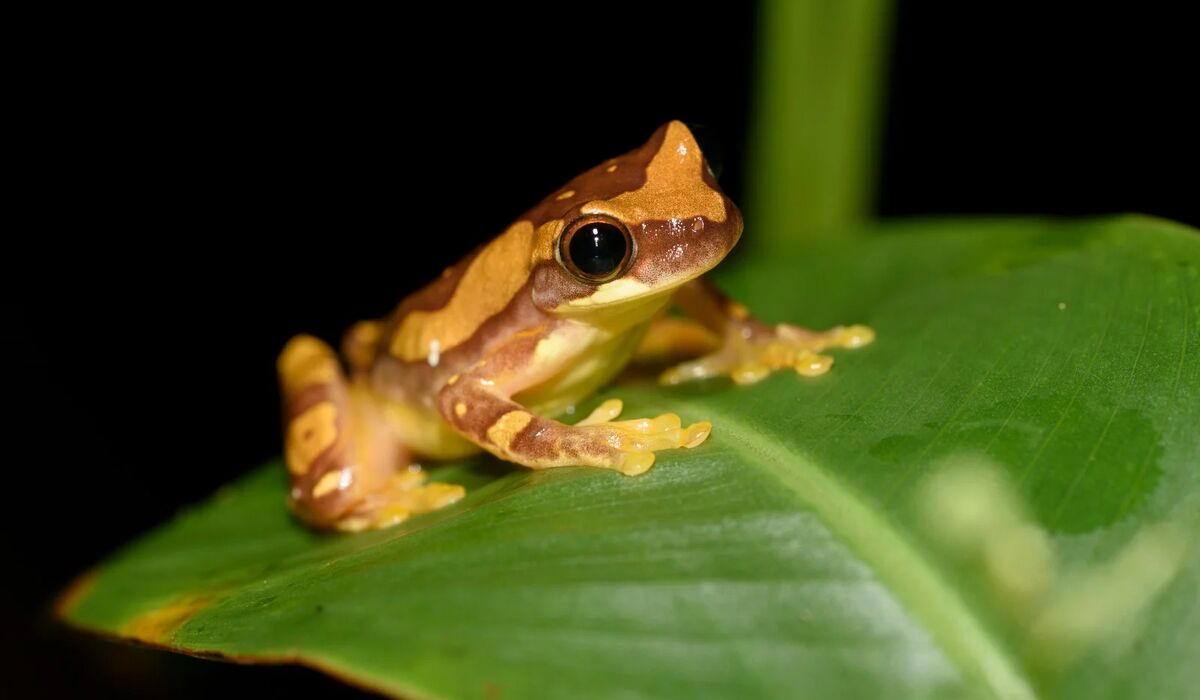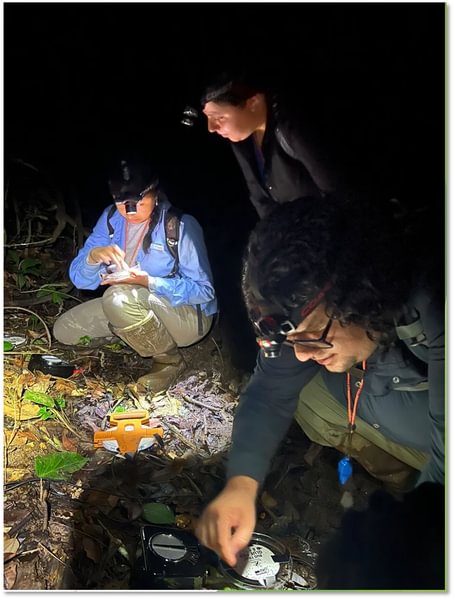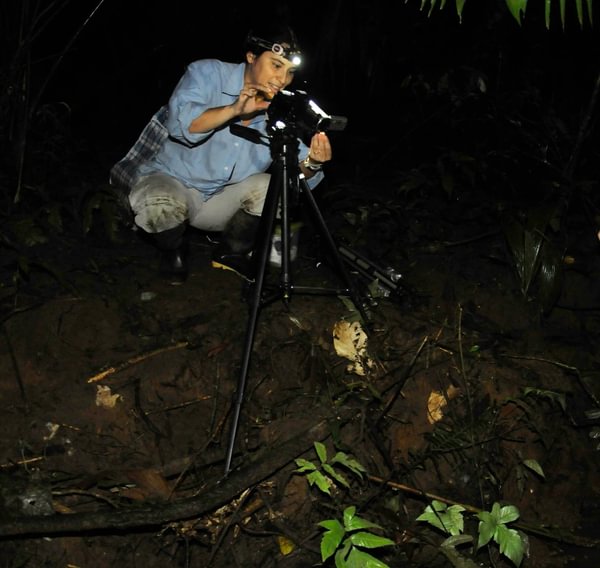
As scholars and teachers, our faculty engage students in professional projects that take them beyond the Gettysburg campus and into the field to perform experiential research.
The U.S. National Science Foundation’s (NSF) recently awarded Gettysburg College Biology Prof. Alex Trillo a $233,022 Mid-Career Advancement (MCA) grant, which will fund Trillo’s research and fieldwork at the Smithsonian Tropical Research Institute (STRI) in Panama, beginning next summer.
This three-year grant will provide training for Trillo to investigate disease transmission in frogs within mixed-species choruses and enable Trillo to invite two Gettysburg students to join her in Panama for two summers to support her research efforts.
As part of this research project, Trillo will collaborate with Dr. Richard Hall at the University of Georgia, Dr. Matt Bolek at Oklahoma State University, and Dr. Ryan Shannon at Miami University of Ohio to learn about vector-borne disease transmission in frogs. This work will include field measurements of disease prevalence, transmission experiments, and disease mathematical modeling.

Studying disease transmission
Through her current research, Trillo, a behavioral ecologist, investigates the effects of eavesdropper predators and parasites on the evolution of signals and signaling behavior in frogs. She explained that one branch of her work explores the changes in predator and parasite risk that occur when several different frog species call from a single chorus location. Specifically, she examines how varying numbers of specific frog species in a mixed chorus can alter the level of attraction of eavesdropping predators and parasites at that site.
During her previous field research experiences in Panama, Trillo discovered that calling near frog species that are highly attractive to blood-sucking midges can increase the risk of midge attack in less attractive frog species. These midges do not only suck blood; they are also vectors that transmit blood pathogens, such as trypanosomes, between frogs. Trillo added that most research on wildlife disease investigates how diseases are transmitted within a single species. However, her research considers transmission in mixed-species groups.
“Something that people haven’t looked at as much is what happens where there are lots of different species all attracting a vector to different levels and in different ways,” she said. “Does having more than one species attracting vectors at the same time change the way disease transmission happens?”
Trillo believes that her research findings on disease transmission could move beyond frog choruses and lead to future investigations by researchers on other species that form mixed-species groups. These species include mixed-assemblages resulting from human activities such as communal livestock housing, cohabitation with domestic animals, or mixed grazing herds.

Immersing students in experiential research
For the last 10 years, Trillo has invited Gettysburg students to journey with her to Panama on research expeditions, where they’ve had opportunities to interact with and learn firsthand from researchers associated with STRI. As the world’s premier tropical research institute, STRI brings together scientists from around the globe to conduct groundbreaking research on tropical forests and marine ecosystems.
“For students interested in working with animals, plants, or ecosystems, this experience would be hard to get in any other way—even if you’re in an R1 research institution,” she said. “You won’t find the same concentrations of researchers studying everything from the molecular biology of tropical butterflies to the behavior of bottlenose dolphins in one location. This allows them to see the whole array of research possibilities in the tropics. They’re doing tropical research alongside other researchers at various stages of their careers, all engaged in highly novel work across diverse topics.”
In addition to visiting and working at STRI, this grant will provide Gettysburg students with advanced training in identifying trypanosomes, measuring parameters related to disease prevalence and transmission, and learning how to model disease dynamics. This level of training wouldn’t be possible without grant funding.
Trillo’s newly funded research in Panama will also present a unique opportunity to bring back knowledge and skills from the field to offer advanced-level classes in disease ecology at Gettysburg.

“This work is important because we, our society, need to have a deeper understanding of how diseases get transmitted, especially in wild environments. This is a whole field of study that could be opened up for the College,” she said. “We’re really good about positioning students for research, and I think this could create a whole new avenue for our students.
“I really enjoy teaching. One of the most rewarding moments I have is when I’m passing on the knowledge and the care that I have for the natural world to my students. That’s something that a liberal arts school, and especially Gettysburg College, allows me to do,” she continued. “I really appreciate that aspect of mentorship and that aspect of teaching science. I enjoy it when students get that twinkle or sparkle in their eyes when they get excited about something. That’s so rewarding.”
Explore student research opportunities in the Biology Department.
Related Links:
External Links:
By Michael Vyskocil
Photos provided by Biology Prof. Michael Caldwell
Posted: 10/20/25